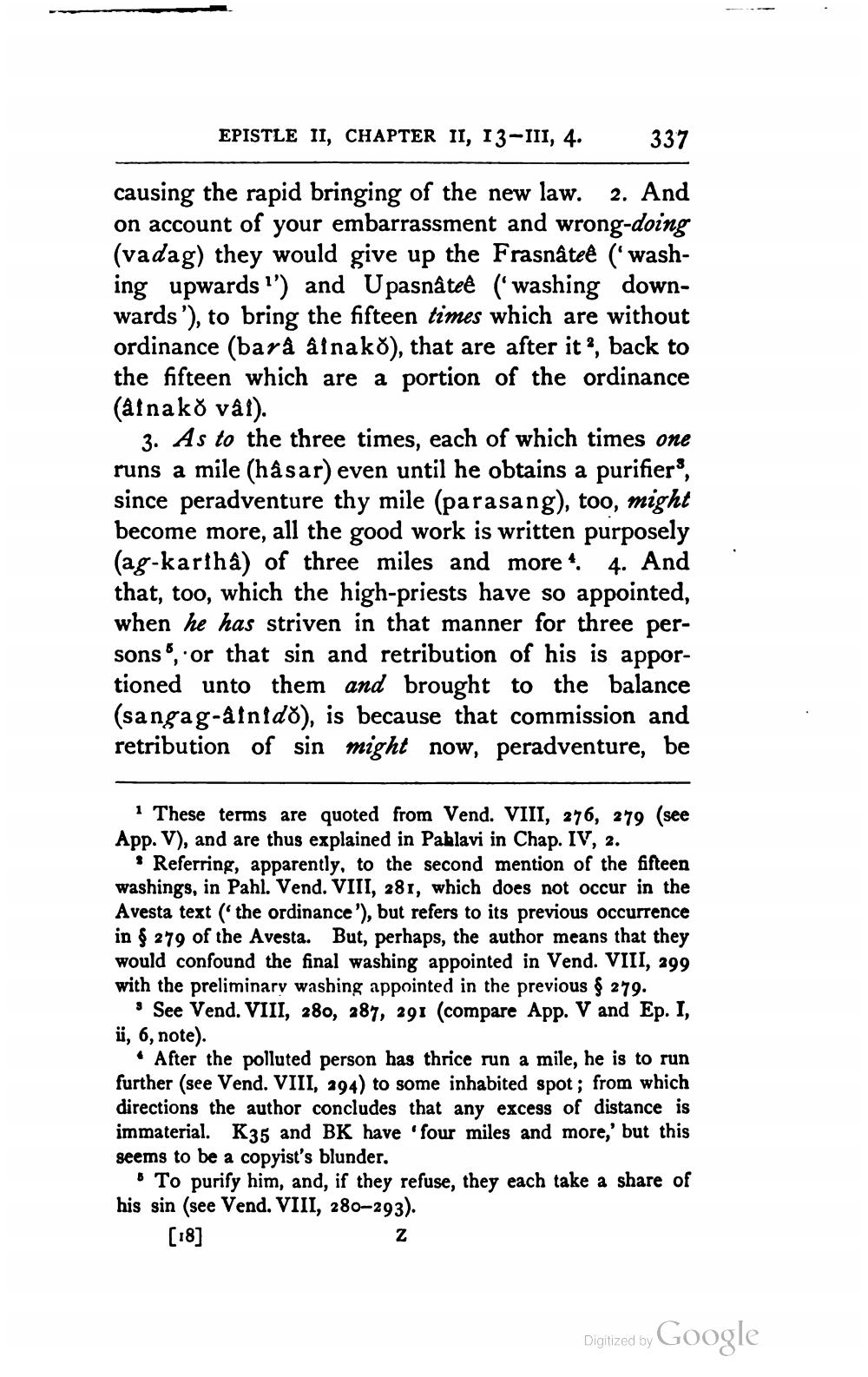________________
EPISTLE II, CHAPTER II, 13-III, 4.
337
causing the rapid bringing of the new law. 2. And on account of your embarrassment and wrong-doing (vadag) they would give up the Frasnâteê ('washing upwards ?') and Upasnâtee (washing downwards'), to bring the fifteen times which are without ordinance (barà ainakở), that are after it?, back to the fifteen which are a portion of the ordinance (ainako våt).
3. As to the three times, each of which times one runs a mile (hâsar) even until he obtains a purifier, since peradventure thy mile (parasang), too, might become more, all the good work is written purposely (ag-karthâ) of three miles and more 4. 4. And that, too, which the high-priests have so appointed, when he has striven in that manner for three persons", or that sin and retribution of his is apportioned unto them and brought to the balance (sangag-âinido), is because that commission and retribution of sin might now, peradventure, be
· These terms are quoted from Vend. VIII, 276, 279 (see App. V), and are thus explained in Pahlavi in Chap. IV, 2.
* Referring, apparently, to the second mention of the fifteen washings, in Pahl. Vend. VIII, 281, which does not occur in the Avesta text (the ordinance'), but refers to its previous occurrence in $ 279 of the Avesta. But, perhaps, the author means that they would confound the final washing appointed in Vend. VIII, 299 with the preliminary washing appointed in the previous $ 279.
See Vend. VIII, 280, 287, 291 (compare App. V and Ep. I, ü, 6, note).
• After the polluted person has thrice run a mile, he is to run further (see Vend. VIII, 194) to some inhabited spot; from which directions the author concludes that any excess of distance is immaterial. K35 and BK have 'four miles and more,' but this seems to be a copyist's blunder.
To purify him, and, if they refuse, they each take a share of his sin (see Vend. VIII, 280-293).
[18]
Digitized by Google




